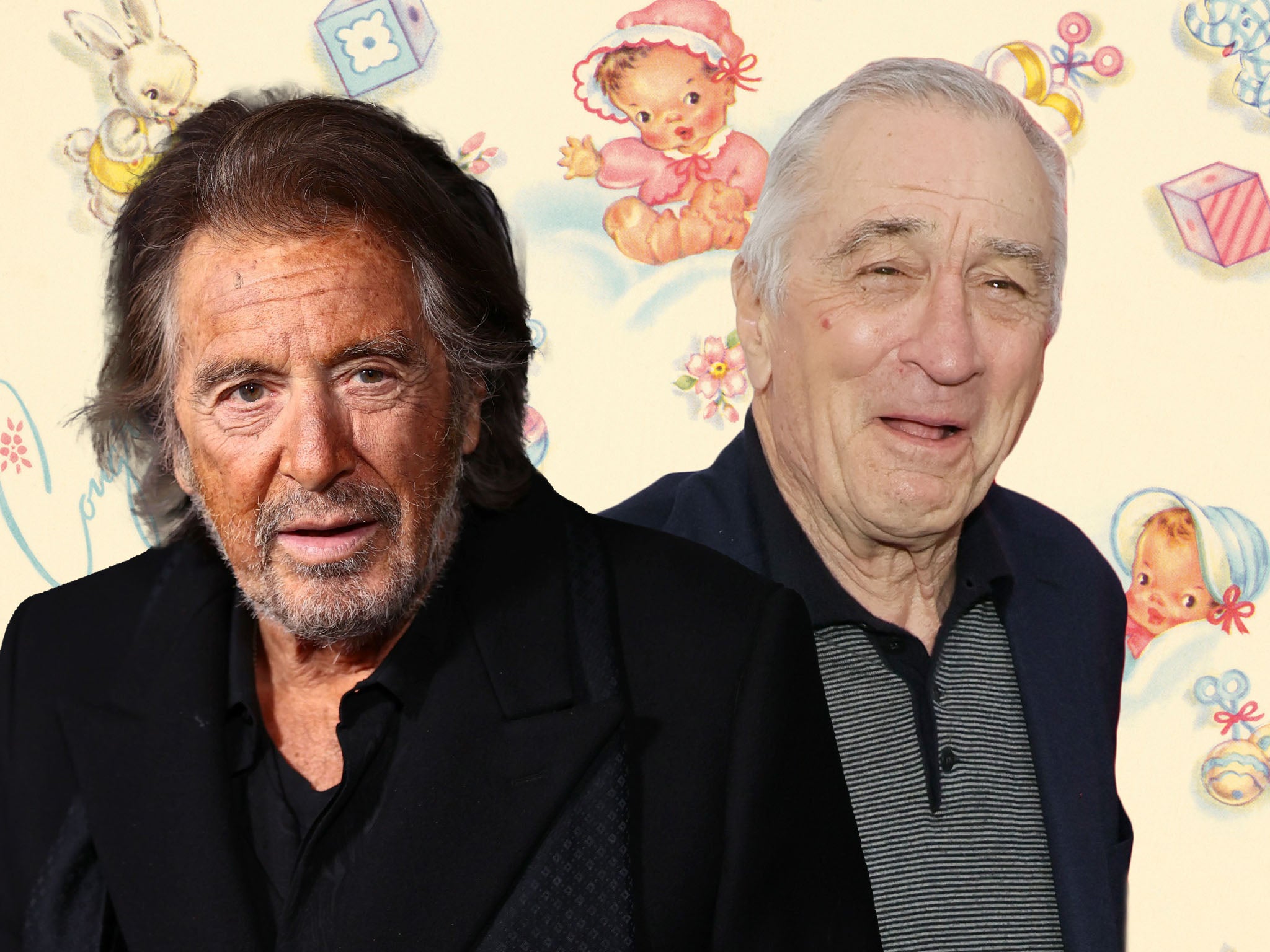Are Pacino and De Niro being ‘selfish’ by choosing older parenthood?
As the veteran movie stars both announce new children within weeks of each other, Eloise Hendy asks experts and parents what it’s really like to have babies later in life

Two weeks ago, a great battle ensued on Twitter. A two-option poll went so viral it must have made the original poster want to throw all their wifi-enabled devices into a large body of water. The question was simple: who was hotter, young Robert De Niro or young Al Pacino? Three-hundred-thousand votes later, the result was an exact 50/50 split. Yet, looking at the news over the past week, you would be forgiven for thinking that the battle had been taken up by the Hollywood legends themselves, with recent headlines suggesting that both Pacino and De Niro are determined to win the tie-break and prove they’ve still got it. And by “it”, I mean full use of their reproductive functions.
Within days of the poll closing, De Niro announced that he had become a father for the seventh time, at the age of 79. Then, just two days ago, it was revealed that Pacino’s 29-year-old girlfriend, Noor Alfallah, was pregnant, making Pacino an expectant father at the age of 83. The immediate and immoderate online reaction to this news seemed to bear out the old adage that you either die a Scorsese hottie, or live long enough to see yourself become the protagonist of thousands of internet think pieces about male fertility. Yet, one of the things that seems to have got lost in all the pontificating about “biological clocks”, gendered expectations, and age gap relationships (the internet’s favourite divisive topic), is what it is actually like being an older parent.
Part of this gap in discussion might be because even the term “older parent” is contentious. In 2020, the average age of mothers in England and Wales was 30.7 years, and the average age of fathers was 33.7 years. So, should everyone over these ages be regarded as “older parents”, or only those adding decades to the averages? Even if we take Pacino’s 83 years as a clear case of pushing reproductive functioning to its limits, it’s far from the only case. The oldest confirmed father – Australian Les Colley – was 92 and 10 months when he had his ninth child with his third wife. But this fact naturally brings in an inevitable gendered aspect, as it seems safe to assume that Colley’s third wife was just a tad younger. This begs the question, if nonagenarian men can biologically bear children, but women in their late thirties are classed as “geriatric” on their medical notes, what do these terms even mean? At what point should someone be classed as “old”, or even “too old”?
Subscribe to Independent Premium to bookmark this article
Want to bookmark your favourite articles and stories to read or reference later? Start your Independent Premium subscription today.
Join our commenting forum
Join thought-provoking conversations, follow other Independent readers and see their replies